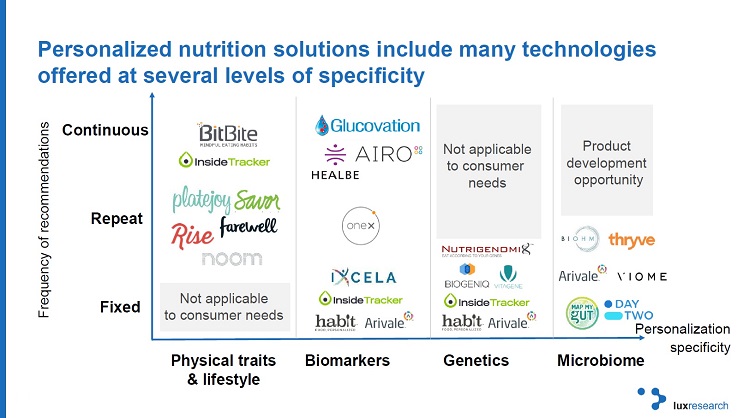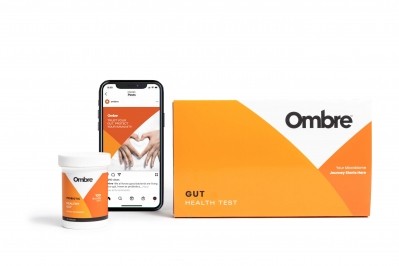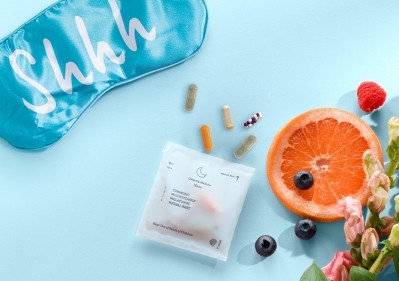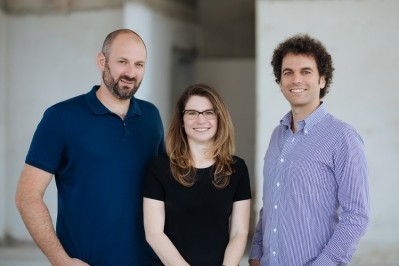Lux Research: 'It's paramount that microbiome data is used for personalized nutrition'

Lux Research, a Boston-based market research company with offices in the US, Asia, and Europe, released a report on the personalized nutrition trend which contained a summary of what the market looks like today, and the future opportunities.
This market includes services like Israeli DayTwo, which analyzes a user’s stool sample to recommend foods that will optimize the user’s gut microbiome for health outcomes, as well as Habit, which offers nutrition plans based on metabolism, DNA, and body metrics.
“Right now, personalized nutrition services are a ‘nice-to-have,’ but if we move focus to prevention, it can be a ‘need-to-have,” Thomas Hayes, research associate at Lux Research and author of the report, told us.
In the report, he uses Habit as an example of personalized nutrition service that hits all the marks that Lux’s analysts think consumers will benefit from: Backed by science, good value in terms of price, and ample consumer guidance. The Campbell Soup-backed company originally had a meal delivery component to it when it first launched, but it was discontinued earlier this year so that the company can focus on its test kit and recommendations.
“I think that most personalized nutrition companies—they put so much trust in the consumer to digest all this info and integrate it into their daily lives,” he said.
“You really need to give consumers the necessary tools to integrate your recommended changes to make a positive outcome.”
Opportunity in the microbiome
Though innovation is rampant in the microbiome or pre- and probiotic space, there’s still room for new product development in which the frequency of recommendations is continuous.
Lux Research classifies DayTwo’s frequency, for example, as ‘fixed’ because it offers diet recommendations based on a one-time stool analyses. Companies like Biohm and thryve are classified as ‘repeat,’ because they offer dietary supplements to their users, which would push repeat purchases and repeat use of a microbiome test kit.

To illustrate potential contenders in the ‘continuous’ category, Hayes mentioned one company that’s taking a stab at this concept—an early stage project in Australia called Atmo Biosciences, which is developing an ingestible capsule that can monitor the gut microbiome and share data about it.
“One goal for them is to make personalized nutrition recommendations based on that,” he explained.
And based on the body of evidence surrounding what microbiome data can tell about a person’s health, Hayes added that “it's paramount that microbiome data is used for personalized nutrition.”
“Because of its link to disease states. . .It’s not just a solution for people who are fit already and want to be fitter, but also as a disease prevention tool. A continuous microbiome [personalized nutrition service] will be able to consistently analyze those microbes. We’re not there yet, but that’s where I think we need to go and we will go.”
















